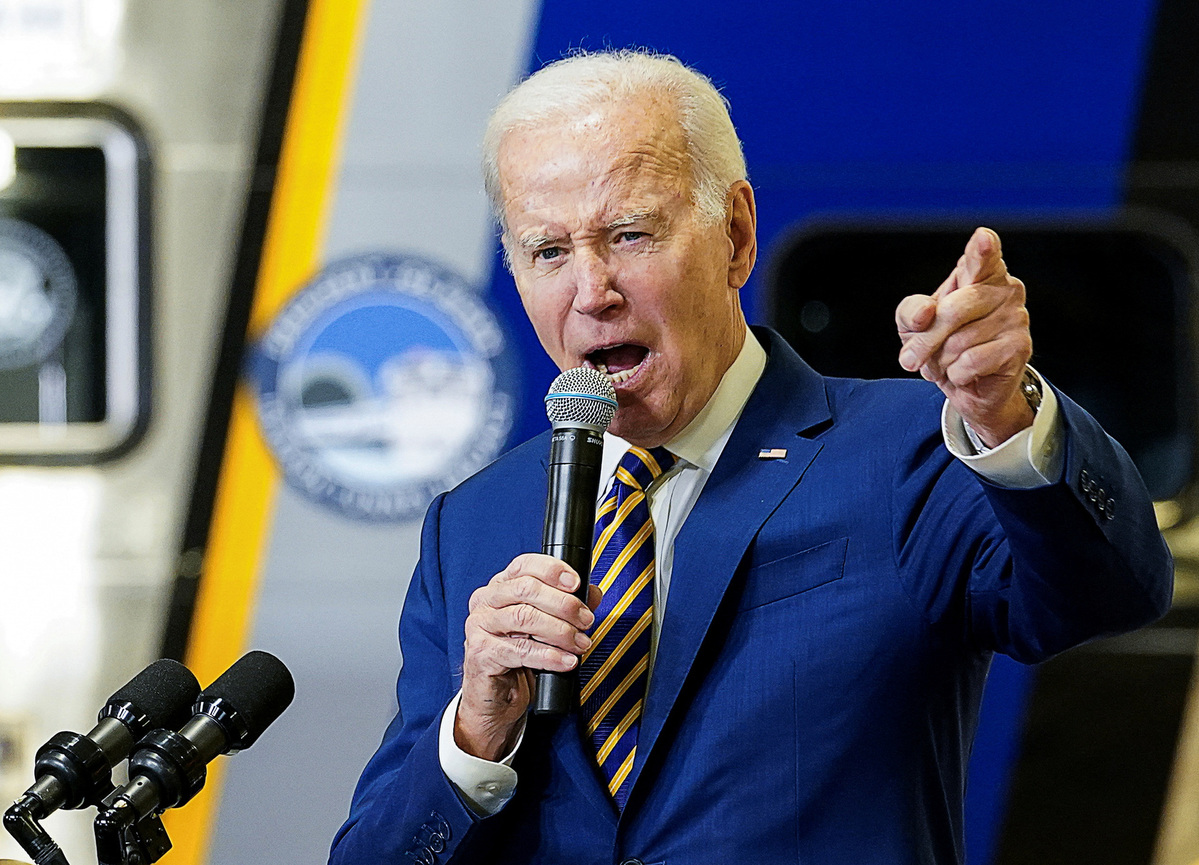US to end national emergencies for COVID-19 in May
By BELINDA ROBINSON in New York | chinadaily.com.cn | Updated: 2023-02-01 10:51

US President Joe Biden said Tuesday that he will end the two national emergencies for COVID-19 in May, three years after the declarations were made to address the pandemic.
The gradual end of the COVID-19 national emergency and public health emergency by May 11 aims to signal the federal government's move away from treating the pandemic in the US as an endemic threat to public health. It will also end a host of free benefits given to help the public.
Biden made his announcement as the Republican-controlled House was scheduled to vote on "The Pandemic is Over Act''. The bill sought to force an end to the public health emergency and investigate how the federal government has handled COVID-19.
The White House said in a statement: "An abrupt end to the emergency declarations would create wide-ranging chaos and uncertainty throughout the health care system — for states, for hospitals and doctors' offices, and, most importantly, for tens of millions of Americans."
Representative Brett Guthrie, the Kentucky Republican who led the bill, wants the House to proceed with a vote. He believes it played a part in forcing the White House to announce an end date.
"I think we should go forward," Guthrie said Monday. "If for some reason they don't do it on May the 11th, the vehicle is still there for Congress to take back its authority."
Several changes will be ushered in by the end of the national emergencies, including the end to federal COVID-19 relief money.
Vaccines no longer will be managed by the federal government, forcing some Americans to pay for them. The cost of a COVID-19 vaccine could soar, as the government will no longer buy it.
Pfizer already announced it could charge $130 per dose. That cost is three times more than the federal government was paying, according to the Kaiser Family Foundation.
Americans covered by Medicare, Medicaid and private insurance plans had been able to get coronavirus tests and vaccines at no cost during the pandemic.
People that were covered by Medicare or private insurance were eligible for up to eight at-home tests per month at no cost. Those on Medicaid could also get free at-home tests.
But as the emergencies end, Medicare beneficiaries will face out-of-pocket costs for at-home testing. Vaccines will continue to be covered at no cost, so will testing from a doctor.
Most state Medicaid programs will cover coronavirus tests ordered by a doctor, but there may be additional costs.
Those without health insurance had been able to access free testing and vaccines. But it will soon become more difficult for them to get free services.
Healthcare providers still will be mandated to provide help by phone or online. But hospitals, which had received a 20 percent increase in Medicare payment rates for treating COVID-19 patients, will no longer receive the benefit.
The US Food and Drug Administration said Tuesday that any existing emergency use authorizations for COVID-19 vaccines, treatments or tests will stay in place after May 11. It also may continue to issue emergency-use authorizations if needed.
More than 1.1 million Americans have died from COVID-19 since 2020, according to the Centers for Disease Control and Prevention (CDC). At least 500 people per day still die from COVID-19 in the US.
A national emergency was first declared by Health and Human Services Secretary Alex Azar, under President Donald Trump's administration, on Jan 31, 2020. Trump later announced a public health emergency that March. When Biden took office in January 2021, he extended the emergencies.
Representative Tom Cole, an Oklahoma Republican, called for an immediate end to the emergencies saying the only reason Biden has extended them until May is to slip through changes like forgiving some federal student loan debts.
"The country has largely returned to normal," Cole said Monday. "Every day Americans have returned to work and to school with no restrictions on their activities. It is time that the government acknowledges this reality: The pandemic is over."
Globally, 6.8 million people have died since the start of the pandemic. The World Health Organization said Monday that coronavirus remains a global health emergency.
























